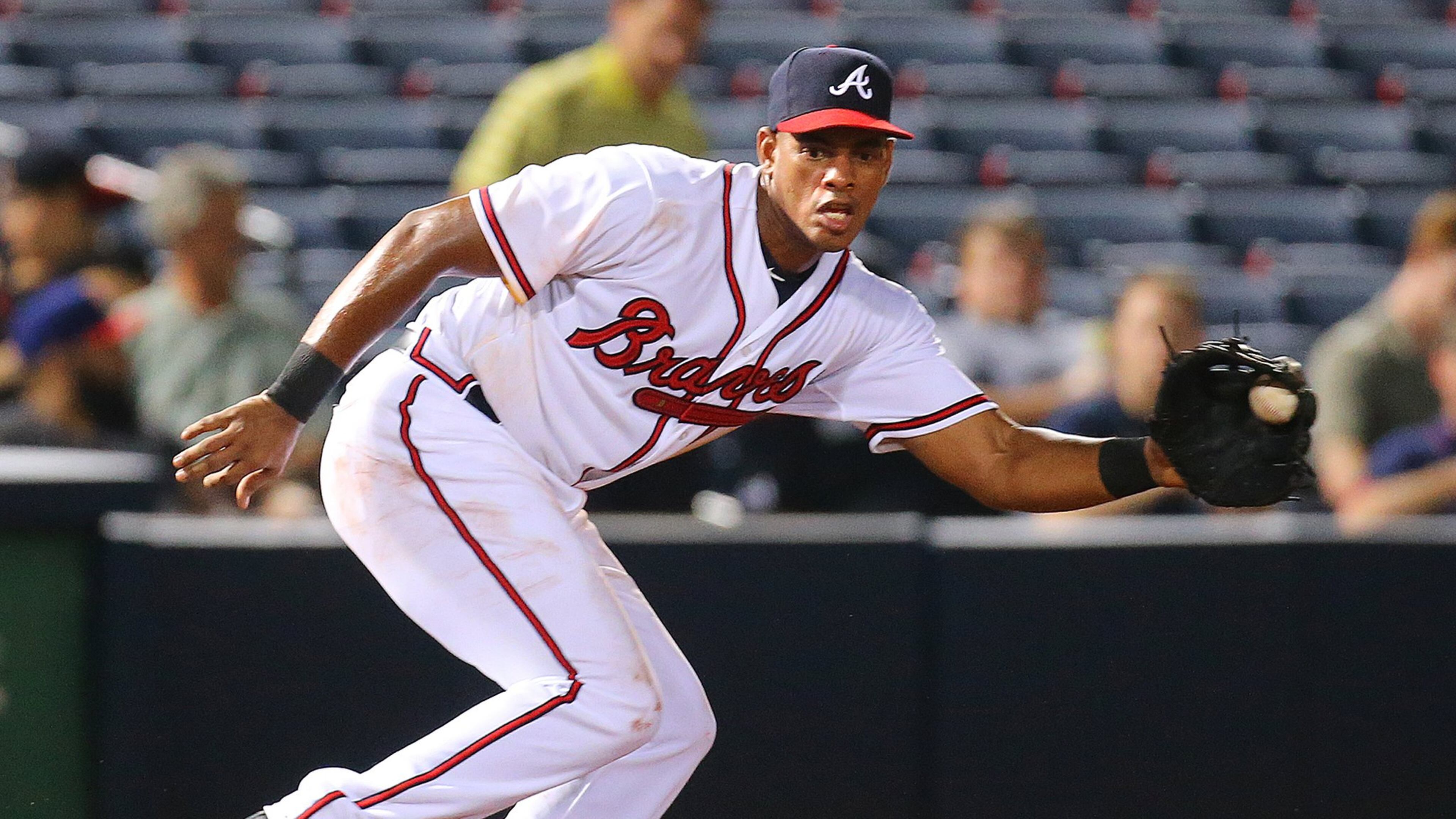Braves’ Olivera set for winter ball in Puerto Rico

His brief and rather inconspicuous first season in the major leagues is over, but the baseball year isn’t stopping for ballyhooed Braves third baseman Hector Olivera, who’ll play six weeks of winter ball in Puerto Rico and have a Braves coach working with him every step of the way.
Actually, the latter process will begin even sooner than the start of the winter-ball season. Olivera will start working almost immediately with Braves assistant hitting coach Jose Castro in Miami, where both men have homes.
In Puerto Rico, Braves minor league infield instructor Luis Lopez will be part of the coaching staff for Caguas, the team Olivera will play for until mid-December.
“I think we’re not going to see the Olivera we want until maybe April of next year, when he gets a winter ball season and he gets a spring training,” manager Fredi Gonzalez said Monday at Turner Field, a day after his Braves swept a season-ending doubleheader against St. Louis, an upbeat ending to a tumultuous season marked by numerous trades and 95 losses.
“Then I can sit and go, you know what, I think he’s an infielder, or I think he’s an outfielder. You see arm strength. Going from second base to third base, the arm angle is different. You see him run, you see power, you see those things, so you’re optimistic this guy can be all those things that we talk about.”
Gonzalez was responding to a question about whether Olivera might be better suited for the outfield. For now, the Braves say they have no plans to move him, but haven’t ruled out the possibility.
“He hasn’t played much,” general manager John Coppolella said. “I think that we’ll see how things go when he plays winter ball. I don’t think we’re going to make any calls right now, what he is or isn’t. I think you’ll see him get better and better.
Nothing about the 2015 season was normal for Olivera, a 30-year-old rookie whose 222 plate appearances were divided between seven teams in seven leagues for two organizations, the Dodgers and the Braves. The Cuban defector was declared a free agent last winter and signed a six-year, $62 million contract with the Dodgers following a protracted bidding war that caused him to miss all of spring training.
He was thriving with the Dodgers’ Triple-A team, about to be brought up to the majors, when he injured a hamstring. Before returning from the disabled list he was traded to the Braves, who’ll owe him $32 million over the next five seasons (the Dodgers owe the rest, including a $28 million signing bonus).
Braves officials – unlike many fans and other observers – aren’t jumping to conclusions about Olivera based on modest stats in 24 major league games. He hit .253 with a .310 OBP, seven extra-base hits (two homers) and a .715 OPS in 87 plate appearances, and played shaky defense at third base, a position he’s still getting used to after playing mostly second in Cuba.
The Braves think a little more stability and comfort with his surroundings will help him flourish next year in his first full season in the majors. They’re sending Olivera to Puerto Rico to play for Caguas, whose manager/general manager is former major leaguer Alex Cora.
In addition to having Lopez on the Caguas coaching staff, the Braves will have hitting coach Kevin Seitzer spend a month working with Olivera in Puerto Rico.
“And I’m going to call Alex and say, ‘Hey, do not treat this guy as an established major leaguer,’” Gonzalez said. “’Please get him out there for extra work. Don’t take anything for granted, because we want him to learn how to play our game.’”
Gonzalez, who was born in Cuba but raised in Miami, admires how Olivera has handled the culture shock and simultaneous adjustment to the majors.
“He’s a high-character guy, and he gives you effort,” Gonzalez said. “But it’s tough playing the game in the big leagues, and I’m sure he knows that he’s like a step behind, in talking to him. And rightfully so. He’s played international competition against Nicaragua, Panama … not against major league teams. Believe me, the difference in the speed of the game from Triple-A to the big leagues — I couldn’t imagine what it is from international to the big leagues.”


